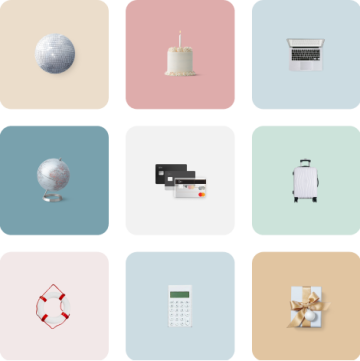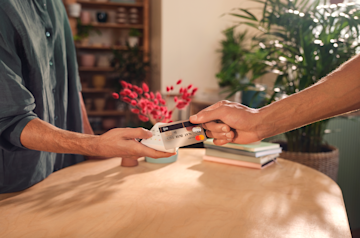
How to get a mortgage in France
Thinking of buying the home of your dreams but wondering how to get a mortgage? Here’s everything you need to know about getting a mortgage in France in 2021.
7 min read
The factors banks consider when you apply for a mortgage
- Your professional situation. Having a stable professional situation with a steady income can be an important factor in getting a mortgage. Permanent employment contracts are preferred by banks when it comes to lending money, so without this type of contract, it might be more difficult to get a mortgage.
- Your down payment. Another deciding factor is the amount you have saved for a deposit. In general, lenders look for a down payment of 10% of the mortgage amount from the borrower. At a minimum, you should plan to have enough to pay the notary fees. These range from 2% to 8% of the purchase price of your property.
- Your debt ratio. This is the share of your income that would go toward repaying your mortgage, and usually should not exceed 35% of your income. However, depending on how much income you earn and the assets you have, the bank might accept a higher debt ratio—from 30% to 40%. Banks also calculate a “remainder for living (reste à vivre)”, which is the amount needed to cover your daily expenses. This can also affect the percentage of the debt ratio you’ll be granted.
- Your ability to save. If you want the bank to put its trust in you by lending you a large sum, you’ll be expected to prove you can afford it. A well-stocked savings account or any other savings plan can go a long way in reassuring the lender that you’re able to save. It’s also a good idea not to use your overdraft in the 6 months prior to applying for a mortgage.
- Your age and state of health. The younger and healthier you are, the more likely lenders will be to grant you a mortgage. With the average length of a mortgage generally being 20 years, banks usually prefer to lend to people aged between 30 and 40 rather than pensioners. It’s likely you’ll need to complete a health questionnaire when applying for borrower insurance, which is often essential to get a mortgage. Your insurance could be refused if your state of health is deemed at risk.
Calculating how much you can borrow
How to calculate your debt ratio
Additional costs for your mortgage
- Agency fees. If you’re using a real estate agency, expect to pay between 3% and 10% of the property price for their services.
- Borrower’s insurance. This relates to death and disability insurance, which isn’t compulsory, but is often required by banks—and usually amounts to around 0.30% of your mortgage value.
- Application fees. These are around 1% of the amount borrowed, but can be negotiable.
- Guarantee. In addition to borrower’s insurance, lenders often ask for other forms of cover, such as an insurance guarantee. Expect to pay around 1% to 3% of the amount borrowed.
- Possible brokerage fees, if you use a broker. Expect to pay up to 2% of the amount borrowed.
- The interest rate (see the next section).
Budgeting made simple
N26 Spaces sub-accounts make it easy to set money aside for your goals in just a few taps.
Get sub-accounts in minutes
Find the best real estate interest rate
Getting a mortgage with no down payment
- Your age and professional situation. If you’re young and have a stable, skilled job, it’s more likely that banks will be able to offer you a mortgage with no down payment, since the risk of non-repayment is low.
- Buying to rent. In this case, the rent paid should cover all or most of your mortgage repayment, and the risk of non-repayment is lower for the bank.
- A low jump in charges. This is the difference between the monthly payments of your future mortgage and what you currently pay to rent. If your mortgage repayments would be the same or not much more as the rent you’re paying now, banks should be more inclined to give you a mortgage with no down payment.
- Getting a zero-interest loan (taux à prêt zero, or PTZ). Set up by the government, this path to home ownership allows you to get a zero-interest loan to finance part of a house or apartment purchase, under certain conditions. However, this approach is means-tested and only possible for the purchase of your first main residence. Visit the Ministry of Economy’s website to learn more about PTZ loans. A zero-interest loan is considered a personal contribution, and can therefore strengthen your financing plan.
Organize your finances with N26
Find similar stories
BY N26Love your bank
Related Post
These might also interest youLIFESTYLECould AI help you manage your money?86% of people are open to using AI for financial planning, but is it safe? Learn how AI is already transforming money management, and discover the pros and cons.
4 min read
LIFESTYLEUnderstanding tariffsFrom higher grocery bills, pricier electronics, and stock market swings, tariffs can impact your wallet and your investments.
5 min read
LIFESTYLEDe-hyping the no-spend challengeThis extreme challenge promises to transform your finances, but is it really the game-changer it claims to be?
4 min read


